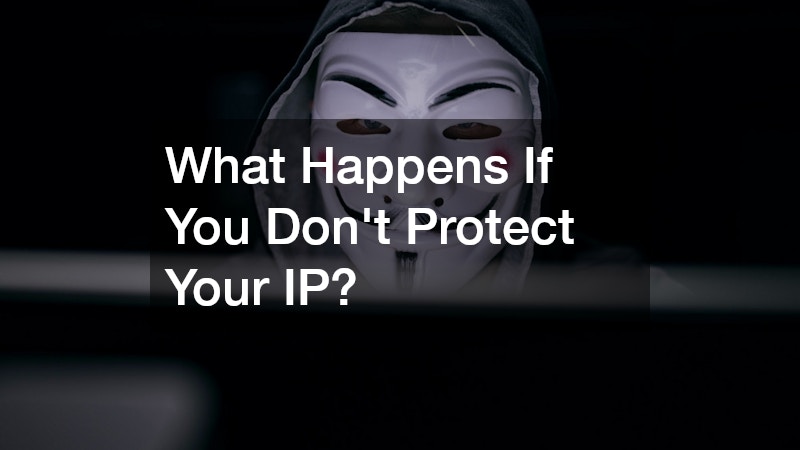In today’s fast-paced, innovation-driven economy, ideas are one of the most valuable assets a business can have. Whether you’re a tech entrepreneur developing a new app, a designer launching a fashion line, or a business owner refining a unique service model, your creations deserve protection. This is where intellectual property (IP) comes in.
Intellectual property includes everything from trademarks and copyrights to patents and trade secrets — all of which can be legally protected to prevent misuse, theft, or unauthorized duplication.
But why is it important to protect intellectual property? For entrepreneurs and innovators, safeguarding IP can mean the difference between long-term success and costly legal battles — or worse, lost revenue and market share.
In this guide, we’ll walk you through the reasons IP protection matters, how it impacts your business, and steps you can take to secure your creative assets.
What Is Intellectual Property and Why Does It Matter?

Intellectual property refers to intangible creations of the mind — ideas, inventions, designs, symbols, brand names, and artistic works. These creations are protected by law through mechanisms like:
- Patents (for inventions and processes)
- Trademarks (for logos, brand names, and slogans)
- Copyrights (for original literary and artistic works)
- Trade secrets (for proprietary business information)
Protecting intellectual property matters because it gives creators exclusive rights to use and profit from their work. Without these rights, competitors can copy your ideas, undercut your pricing, and benefit from your creativity without doing any of the work.
Why Is It Important to Protect Intellectual Property?
For entrepreneurs and business owners, the importance of protecting intellectual property can’t be overstated. Your IP forms the foundation of your competitive advantage and brand identity — two essential ingredients for business growth. Here’s why IP protection should be a top priority:
1. Prevents Theft and Imitation
In highly competitive markets, it’s not uncommon for others to try and replicate successful products or ideas. Registering your IP ensures that you have the legal means to stop copycats from profiting off your hard work.
2. Adds Business Value
IP assets can significantly increase the valuation of your business. Whether you’re pitching to investors or preparing for acquisition, having a portfolio of protected IP demonstrates innovation and credibility.
3. Supports Branding and Recognition
Trademarks and copyrights help create brand recognition. When your IP is protected, customers can easily identify and trust your products or services, building brand loyalty over time.
4. Enables Legal Protection
Without legal registration, it’s hard to enforce ownership of your creations. IP protection gives you the right to pursue legal action if someone uses your work without permission.
What Happens If You Don’t Protect Your IP?

Failing to protect your intellectual property can have serious consequences:
- Loss of competitive edge: Once others can legally replicate your work, your unique selling proposition weakens.
- Revenue leakage: Unauthorized use of your IP can cut into your profits.
- Damage to reputation: Low-quality imitations can tarnish your brand image.
- Legal vulnerabilities: Without IP protection, you may not have legal standing in disputes.
In essence, leaving your IP unprotected is like leaving your front door unlocked — it invites problems that could have been easily avoided.
How Can Innovators and Entrepreneurs Protect Their IP?
Securing your intellectual property isn’t just for large corporations. Here’s how small business owners and solo innovators can get started:
Step-by-Step IP Protection Checklist:
- Identify what’s protectable – Know which aspects of your work qualify as IP.
- Register with the appropriate authority – Apply for patents, trademarks, or copyrights through national IP offices.
- Use NDAs – Protect trade secrets with Non-Disclosure Agreements for partners and employees.
- Monitor your IP – Keep an eye out for potential infringement online and offline.
- Consult an IP attorney – Get legal advice to ensure your strategy is airtight.
Remember, early action is key. Waiting too long to protect your ideas can give others the opportunity to claim them first.
Common IP Protection Mistakes to Avoid
Many new business owners make these missteps when handling intellectual property:
- Assuming your idea is automatically protected
- Not conducting a thorough IP search before launching
- Skipping formal registration
- Using generic legal templates for complex contracts
- Failing to enforce your rights once the IP is protected
Avoiding these pitfalls will save time, money, and potential heartache down the line.
Why Is Intellectual Property Important for Business Success?
Now that you understand the legal side, consider the bigger picture: why is intellectual property important for your business’s future? Strong IP protection promotes innovation, fuels economic growth, and empowers you to take risks.
When you know your ideas are safe, you’re free to pitch them, collaborate with confidence, and invest in marketing. Investors are also more likely to support companies with a robust IP strategy because it lowers risk and opens up licensing or franchising opportunities.
Final Thoughts
Whether you’re a solopreneur or scaling a startup, protecting your intellectual property is not optional — it’s essential. Your brand, product, and ideas are worth safeguarding, not just from copycats but for the long-term health and value of your business.
As an innovator, you work hard to bring new solutions to the world. Let legal IP protection work just as hard to protect what you’ve built.






